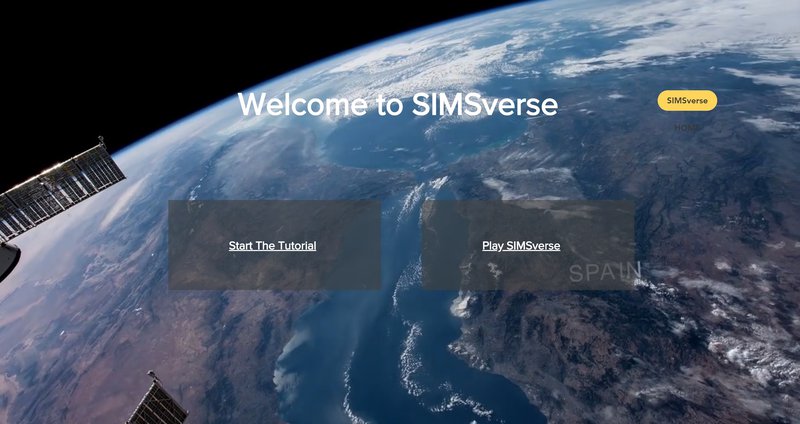Project Details
Awards & Nominations
AWL Planet has received the following awards and nominations. Way to go!
The Challenge | Build a Planet
SIMSverse
A simulation game for creating your own universe

Background
From the many interesting and exciting challenges “Build a Planet” got unanimous voting from all our members. Some members where excited to create a new and innovative game while others were intrigued and looking forward to learning as much information about the formation of our universe and of course, quite intrigued to know what kind of planets could harbor life!
Our main motivations can summarize in the following key points:
- The universe is a wonderful and attractive creation but difficult to understand.
- Planets are different in size and chemistry.
- Relation between the planets and stars is vast and mysterious.
- Learning about planets in the universe can be challenging.
What it does
The intrinsic details and multiple combinations that a star system and its multiple planets can be overwhelming and usually only understood by experts. Too much information and so many details to understand the possibility of a single planet and its relation to its star. Therefore, we came up with the idea of creating a game that would take care of all the scientific and complex calculations required and allow its players to learn while having fun creating their own universe. The idea is to simplify the concepts but keep them accurate and real, so that anyone from a kid to a full-grown adult or even a scientist could enjoy playing and learning or confirming the accuracy of the information.
It was hard to agree on the games main story and flow but at the end we came up with a good solution that solves all or goals.
Our main points are:
- Share the knowledge
- Fact based game (True science)
- Kids friendly
- For everyone, everywhere
How it’s done
The game had to be interesting and simple to understand but at the same time capable of handling and processing complex data and calculations required to determine if planets and stars are possible. The team finally decided to create a simulation game that allows the players to create and design their own universe. Select the desired parameters in a friendly and simple way and find out if your planet or planets can could be real. Then let the universe spin and explore its evolution! Maybe even discover one of your planets harvested life and, who knows, maybe even witness the beginning of a new civilization!
Out key points:
- A simulation game that explores the creation of a star system
- Players customize the star system and create planets by choosing custom characteristics, number of moons, rings, etc. and maybe harbor life.
- Some available features include size, surface chemistry, atmospheric chemistry, orbit, moons, distance from the sun, and other.
- Asteroids, comets, meteorites and other elements are also part of the game.
- Players can interact and observe in time the dynamic of the star systems including the habitable zone.
NASA Resources
We used available data on stars, planets and other objects in the universe to keep the information as precise and real as possible. All the constrains and know rules are applied to make sure no unrealistic of misleading “Planets” can be created.
The resources considered and consulted during the challenge are the following:
- Solar System Exploration, https://solarsystem.nasa.gov
- Solar System Dynamics, https://ssd.jpl.nasa.gov
- Goddard Space Flight Center, https://www.nasa.gov/centers/goddard/news/topstory...
- Akeson, R. L. et al. “The NASA Exoplanet Archive: Data and Tools for Exoplanet Research.” Publications of the Astronomical Society of the Pacific 125.930 (2013): 989–999.
Future
As in every game, things must evolve, and new and more exciting features should always be release in the next stage. Our game is not an exception and many new and exciting features are considered for a second stage or in a more complete version of our game.
Some of these features are the following:
- Expand missions' goals and challenges
- Cloud base multiplayer
- First contact with alien “civilizations”
- “Milky way’s” evolution playback
- Many more science-fun functions
Built With
During the challenge we had limited time so we focus on creating a simulation of how the game would look and a mock demo of how it would flow when creating every element of our star system. To create the base system and simulation we used blender and html to create the mock version of the platform. The game development will be done in Unity and deploy for smartphones, tables and PC.
Tools summary:
- Blender – Used to create a prototype of the simulation engine.
- Html – Used to create a demo version of the prototype.
- Unity – Actual implementation of the game will be conducted in this development tool.
Try it out
GitHub Repository
https://github.com/awl-francisco-renteria/nasaapps...
Game Web demo
https://daniloguimaraes71.wixsite.com/naman/simsve...
Tags
- #solarsystem
- #planets
- #simulation
- #game
- #education
- #kidslearn
Summary
In a quick view we can summarize our project in the following three points:
- Create your own planetary system game
- Travel in time playback
- True science for everybody
Important points
Impact: Everyone, everywhere
Creativity: Learning by playing
Validity: NASA data
Relevance: Satisfies human nature curiosity